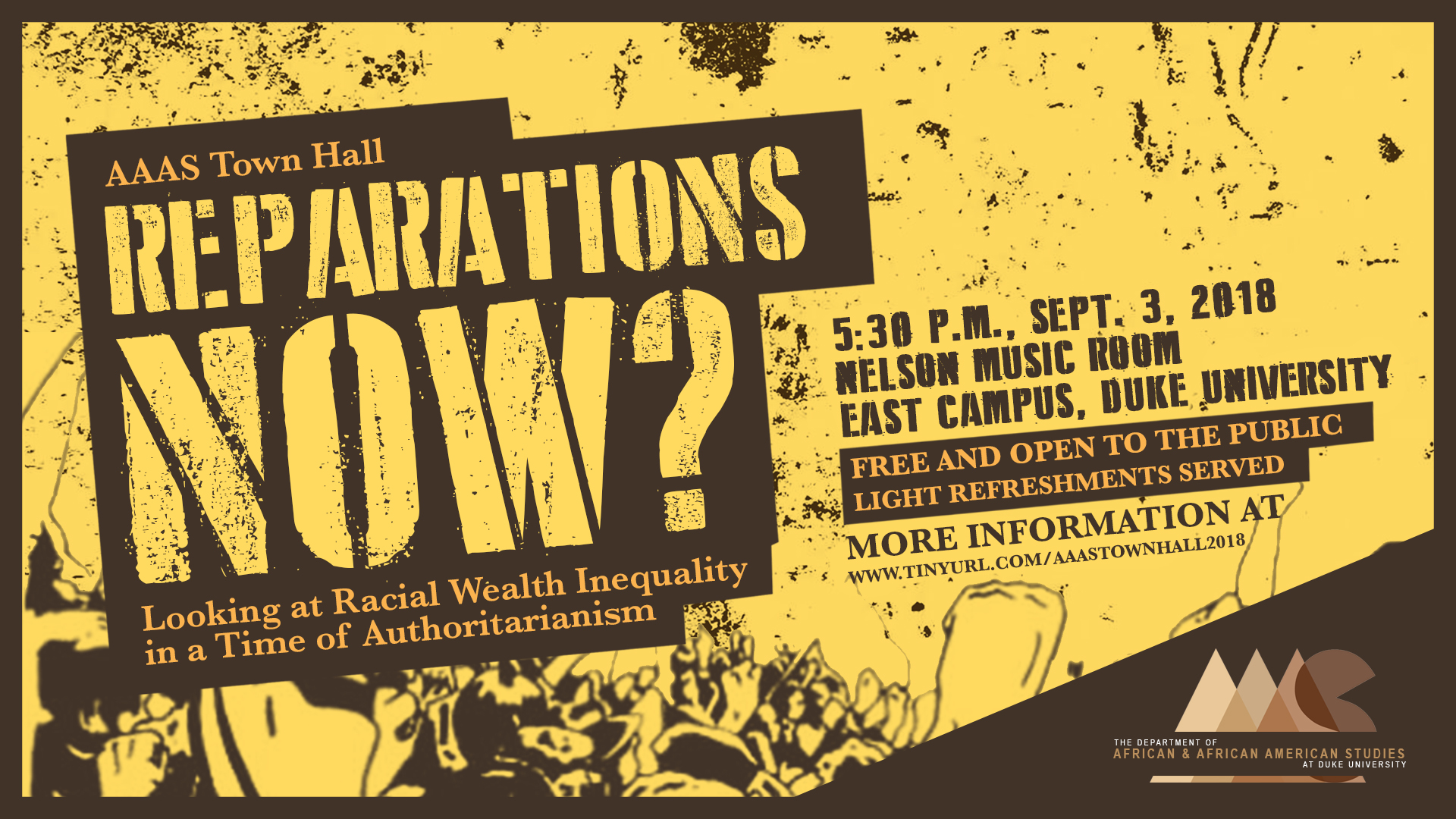 The Department of African and African American Studies (AAAS) at Duke University will kick off the 2018 academic year with a town hall forum on reparations.
The Department of African and African American Studies (AAAS) at Duke University will kick off the 2018 academic year with a town hall forum on reparations.
The event, “Reparations Now? Looking at Racial Wealth Inequality in a Time of Authoritarianism,” will be held at 5:30 p.m. on Monday, Sept. 3rd, in the Nelson Music Room, East Duke 201, on the university’s East Campus. It is free and open to the public. Light refreshments will be served.
Panelists will address the question: What might come of public dialogue around the question of reparations for African Americans in the era of the Trump regime with its continual attacks on the press and dissemination of knowledge, and while there is a Republican-controlled Congress?
“We are living through a moment when two converging elements of our social, political, and economic existence are coming together: the existence of heavily racialized wealth inequality and increasing authoritarianism,” says Wahneema Lubiano, a professor of African and African American Studies.
Lubiano is co-organizing the event with William “Sandy” Darity, the Samuel DuBois Cook Professor of Public Policy, and a professor in the Sanford School of Public Policy, Department of Economics as well as the Department of African and African American Studies.
Darity has been a long-time advocate of reparations for black Americans. In a 2016 article in The Atlantic he wrote, “There is no doubt that the political obstacles to congressional approval of black reparations are significant. … If black reparations is the right thing to do—and I know in the depth of my soul that it is—then we should work to make it happen, no matter how long the odds. We should not bow at the altar of presumed political expediency.”
Lubiano says that raising the issue of black reparations offers an opportunity to consider “the complexities of black reparations against the fear that U.S. democracy itself is being roiled by authoritarianism.”
“We’re going to discuss what reparations has meant and could mean, what concepts are embedded in the public discussion of wealth inequality, and what the relation of reparations might be to changing racialized wealth inequality, all while authoritarianism is both gathering force and contested,” she said.
Panelists are:
- William A. Darity, Jr.
Duke Sanford School of Public Policy, Departments of African & African American Studies, and Economics - Laurent Dubois
Duke Department of History - Malik C. Edwards
NCCU School of Law - Amber S. Hendley
Duke Departments of Economics and Political Science - Andrew Lee
Duke Department of Computer Science - Wahneema Lubiano
Duke Department of African & African American Studies - Joseph R. Winters
Duke Departments of Religious Studies and African & African American Studies